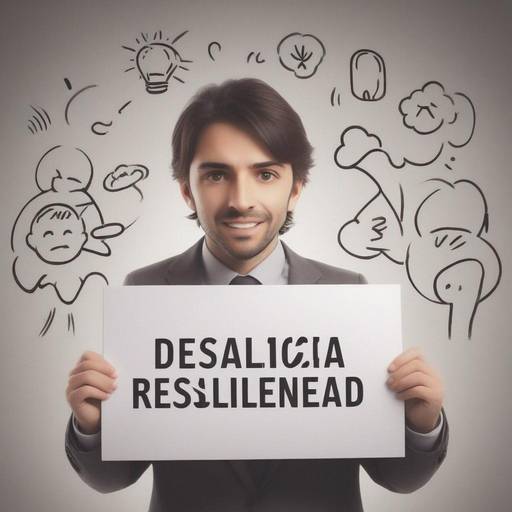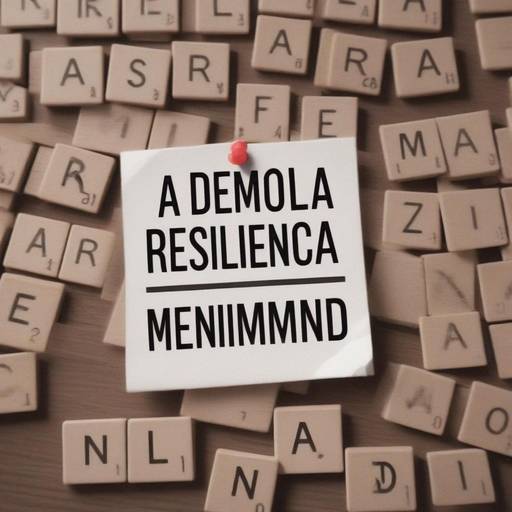
Reflective writing can be a powerful resource for building resilience and promoting personal development. Combining writing with the practice of reflection can help manage stress, overcome challenges and strengthen the ability to adapt to adversities. In this article, we will explore in depth how reflective writing can be used as a tool to develop resilience and promote personal growth.
Introduction
Reflective writing is a practice involving the exploration of thoughts, emotions and experiences through writing. This form of personal expression not only allows for better processing and understanding of experiences, but also provides an opportunity to promote emotional resilience. Resilience, for its part, refers to human capacity to face stressful and traumatic situations, adapt to them and get strengthened. By combining reflexive writing with the development of resilience, we can enhance our ability to face the challenges of life more effectively.
History and Background
The practice of reflective writing has profound historical roots, finding its origins in the ancient philosophical and spiritual traditions of diverse cultures around the world. From the personal journals of historical figures to the introspection exercises proposed by different philosophical currents, writing as a means of reflecting has been present throughout history.
Today, reflective writing has been subject to studies in the academic field, demonstrating its therapeutic benefits and its ability to promote emotional well-being. The combination of reflective writing with the promotion of resilience has gained attention in fields such as psychology, education and personal development.
Analysis in Deep
Reflective writing, when used as a tool for building resilience, offers a variety of benefits. Through written reflection, people can identify their strengths, develop greater self-knowledge and find new approaches to face challenges. Furthermore, the act of putting thoughts and emotions on paper can provide a sense of emotional relief and promote mental clarity.
However, the path to resilience through reflexive writing is not without challenges. Some people may experience difficulties in expressing their emotions in writing or facing internal resistance when dealing with certain experiences. It is important to note that each individual will find their own way in this process and that there is no single formula to achieve resilience through reflexive writing.
Comprehensive review
The practice of reflective writing can adopt various forms, including the writing of personal journals, the creation of autobiographical narratives and the creative exploration of emotions through writing. In addition, the integration of therapeutic writing techniques, such as liberating writing and writing to the future, can enhance the beneficial effects of this practice on the development of resilience.
Experts in psychology and personal development agree that reflective writing can be especially effective when combined with additional self-care practices such as mindfulness, the practice of gratitude and the establishment of emotional support networks. This combination of approaches can strengthen resilience in a holistic way, promoting emotional health and overall well-being.
Comparative analysis
It is important to note that reflexive writing and resilience are closely intertwined, as both focus on the ability to cope with adversities and find meaning and strength in lived experiences. By reflecting on the difficulties themselves through writing, people can build resilience by recognizing their ability to overcome obstacles and learn from their experiences.
Although both concepts are based on the process of self-discovery and personal growth, reflexive writing concentrates on individual expression, while resilience encompasses the ability to adapt and overcome challenging situations. However, the practice of reflective writing can strengthen the emotional and cognitive pillars necessary to develop resilience, which makes both practices meaningfully complemented.
Practical Tips and Accessible Recommendations
For those interested in using reflexive writing as a tool for building resilience, it is essential to establish a regular writing practice that allows us to explore both positive emotions and those associated with challenges and adversities. Some recommended approaches include the writing of letters to oneself at times of difficulty, the exploration of personal meanings in past experiences and the visualization of future overlapping scenarios.
In addition, integrating the practice of written reflection in moments of stress or confusion can provide an effective way to process intense emotions and find a renewed sense of clarity and determination. The combination of reflective writing with the establishment of realistic goals and the adoption of proactive approaches to everyday challenges can significantly enhance resilience.
Reflections by Experts and Industry Ideas
Several experts in psychology, personal development and therapeutic writing agree that the practice of reflexive writing can be a fundamental pillar in the development of resilience. By providing a safe space for emotional expression and the exploration of personal meanings, reflexive writing can foster self-acceptance, empowerment and ability to face the challenges with greater confidence.
In the mental health and emotional well-being industry, the combination of reflective writing with therapeutic approaches focused on resilience is gaining greater recognition as an effective strategy of self-care and emotional strengthening. The integration of these practices into educational, community and work environments is helping to promote emotional health and the integral well-being of people.
Case Studies and Real Life Applications
To better understand how reflective writing can be used to enhance resilience, it is important to explore concrete examples and practical applications in everyday life. Various case studies have documented how the regular practice of reflexive writing has allowed individuals to overcome trauma, manage labour stress and find meaning in times of difficulty. These cases offer valuable lessons on the transformative capacity of reflective writing in resilience development.
In educational settings, the integration of reflective writing as part of socio-emotional education programs has demonstrated significant impacts on the well-being of students and their ability to face academic and personal challenges. Also, in therapeutic contexts, reflexive writing has become an effective tool to support the emotional recovery process and strengthen the resilience of individuals who have faced difficult situations.
Future Trends and Predictions
As awareness of the importance of emotional health and self-care continues to grow, it is hoped that the integration of reflective writing as a practice to foster resilience will become more relevant in different areas. The combination of creative, therapeutic and conceptual approaches to reflective writing and resilience promises to provide new perspectives on how to deal with the challenges of life more effectively.
In addition, the role of digital technology and platforms in facilitating reflexive writing and building resilience opens up new possibilities for reaching a wider and more diverse audience. The creation of interactive digital tools, online communities focused on reflective writing and mobile applications specialized in building resilience through writing represents a constantly evolving area of growth and development.
Conclusion
In short, reflective writing can be used as a powerful tool for building resilience and promoting personal development. By exploring our experiences, emotions and thoughts through writing, we can strengthen our ability to face challenges, manage stress and find meaning in adversities. The combination of reflective writing with resilience development practices offers a rich and meaningful way for personal and emotional growth.
Frequently asked questions
What are some practical reflexive writing exercises to promote resilience?
Some practical reflexive writing exercises include the writing of letters to oneself at times of difficulty, the exploration of personal meanings in past experiences and the visualization of future overlapping scenarios. These approaches can strengthen resilience by promoting deep reflection and self-discovery.
How can I integrate reflective writing into my daily routine to strengthen my emotional resilience?
You can integrate reflective writing into your daily routine by assigning a specific time for written reflection, either at the beginning or at the end of the day. Establishing a constant habit of reflexive writing will allow you to explore your thoughts and emotions on a regular basis, thereby strengthening your ability for emotional resilience.
What is the difference between reflexive writing and written therapy?
Reflective writing focuses on personal exploration and expression of thoughts and emotions through writing, without necessarily requiring the guidance of a therapist. On the other hand, written therapy involves the guidance of a mental health professional who uses writing as part of a structured therapeutic approach to address specific challenges.
Is reflexive writing appropriate for all people, regardless of their writing experience or their skill level?
Yes, reflexive writing can be beneficial for people of all skill levels in writing, as it focuses on self-expression and self-discovery. It is not necessary to have previous experience in writing to begin practicing written reflection and strengthen emotional resilience.
How can I use reflective writing to overcome traumatic experiences or emotionally challenging situations?
Reflective writing can be used to overcome traumatic experiences or emotionally challenging situations by providing a space to process intense emotions, seek meaning in the experiences experienced and develop healthy coping strategies. By exploring these experiences through writing, it is possible to promote emotional resilience and personal growth.
Are there creative or alternative approaches to reflective writing that can effectively strengthen resilience?
Yes, there are creative and alternative approaches to reflective writing that can strengthen resilience, such as the writing of autobiographical narratives, the exploration of personal metaphors and the use of therapeutic writing techniques. These approaches offer various forms of expression and personal exploration that can enhance resilience development.
In conclusion, the practice of reflective writing offers a powerful tool to promote resilience and personal development, allowing people to explore their experiences, emotions and thoughts significantly. By integrating reflective writing in the pursuit of resilience, we can strengthen our ability to face challenges, find meaning in adversities and promote greater emotional well-being.
Prepare your pen or turn on your computer and begin to explore the transforming power of reflective writing to strengthen your emotional resilience and turn towards meaningful personal growth.






















































